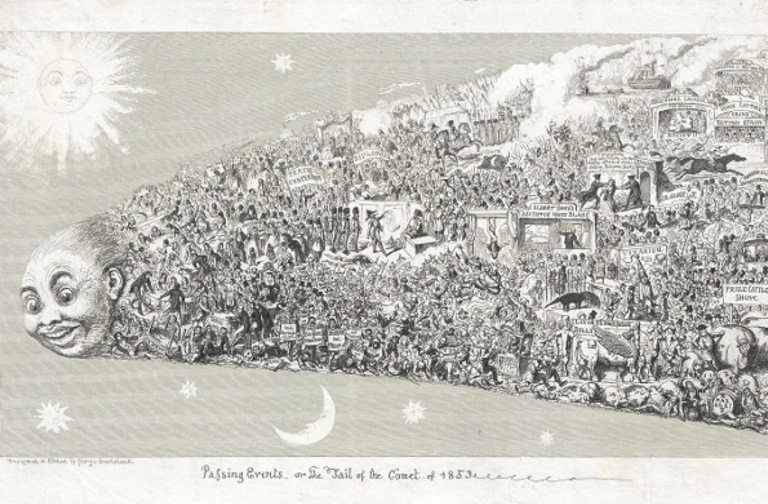You know a satirical movie has hit its target when the mainstream reviewers call it “shrill” and “overblown.”
That’s what’s happened to the brash comedy “Don’t Look Up” which was released on Netflix the day before Christmas. Most of the mainstream reviewers panned it. Audiences disagreed – the movie promptly jumped to the top of Netflix’s most-watched list in 89 countries.
As one site said, “general audiences don’t give a rat’s ass about what the critics think.”
Like the earlier political comedies “Network” and “Dr. Strangelove,” the movie is a cry of frustration. We know bad things are in store. We know we’re being lied to by politicians, the media, the sociopathic billionaires.
But what can we do? We write earnest articles, we protest, we try to understand different points of view.
For years we do this, and the machine rolls on. Sometimes we just need to rear back and laugh at all the jackassery.
As a climate scientist, I live in #DontLookUp every fucking day
I felt seen
… it’s satire but it’s also damn accurate … we need more climate storytelling like this
What’s ironic is that the movie doesn’t mention climate at all. Instead a comet is discovered hurtling towards earth. It’s a planet killer which will send tidal waves a mile high in all directions.
You’d think that the imminent catastrophe would set off screaming headlines and a lightning response from world governments.
If you think that, silly you! You haven’t been paying attention to our dysfunctional response to:
- Climate change
- Covid
- Obscene wealth vs growing desperation
- Species extinction
- Resource depletion
The movie shows us a familiar cast of characters. Some struggle heroically to get the word out. Others plot how to squeeze the crisis to their personal advantage.
And most of us rubes continue our narcissistic preoccupations until it hits us that “we’re all going to die!” and we take to the streets in panic.
Meryl Streep prances through the role of a smarmy Madame President. Is she a female version of former President Trump? Or does the photo of Bill Clinton on her desk mean that she’s a Democrat?
Leonardo DiCaprio is the flawed scientist, trying to do the right thing but seduced by media fame and an air-brushed talk show host (Cate Blanchett). Are there hints of Anthony Fauci?
A young woman scientist (Jennifer Lawrence) can’t stand the hypocrisy and has one blowup after another.
Many more celebrity figures are skewered as the comet comes nearer.
Part of the fun (in a Schadenfreude vein) is identifying who is being satirized.
So why do the nattering nabobs shrink from the movie as if it were kryptonite?
Because it tells the truth.
For those of us who have felt marginalized, it reminds us that we’re not crazy. For the general public, it’s rollicking fun and an eye-opener.
See it, argue about it, let the truth sink in.
Hint: don’t switch off your set when the credits begin to roll. There’s a bonus scene that brought the biggest laugh of the night from my companion.
In the second part of this review, I’ll go deeper into why “Don’t Look Up” packs such a powerful punch.
Image: “Passing events, or the Tail of the Comet” (1853) by George Cruikshank. Via Wikimedia Commons https://commons.wikimedia.org/wiki/File:Passing_events,_or_the_Tail_of_the_Comet_1853.jpg





